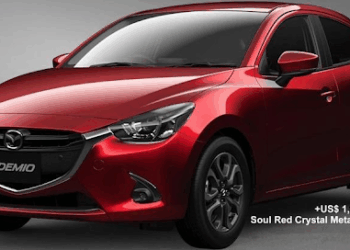As electric vehicles (EVs) gain traction across the globe, Nairobi is slowly joining the charge toward sustainable mobility. With increasing fuel prices, improved charging infrastructure, and growing environmental awareness, many Nairobians are now exploring electric cars as a viable alternative to traditional petrol or diesel vehicles. But how do you pick the right EV for the city’s unique driving conditions?
Whether you’re looking to cut down on fuel costs, reduce your carbon footprint, or simply embrace innovation, here’s a comprehensive guide on how to choose the right electric car for Nairobi’s roads in 2025.
1. Understand Nairobi’s Driving Conditions
Before diving into the car models and specs, it’s crucial to consider Nairobi’s road conditions. While the city center boasts tarmacked roads and highways, many residential estates and outskirts like Ruaka, Karen, or Gikambura feature bumpy terrain, potholes, and uneven surfaces. Your EV needs to handle both well-paved streets and rough patches.
Key Takeaway: Prioritize ground clearance, battery range, and suspension quality. A car that sits too low might not survive Nairobi’s potholes for long, while one with poor range might struggle with traffic-heavy commutes.
2. Choose an EV with Sufficient Ground Clearance
Most electric cars are designed with urban roads in mind—but Nairobi isn’t your typical city. Constant roadworks, unexpected bumps, and poor drainage in some areas can be a nightmare for cars with low ground clearance.
Ideal Picks: Look for electric SUVs or crossovers like the MG ZS EV or BYD Yuan Plus. These offer enough height and road stability, making them a solid match for Nairobi’s unpredictable terrain.
💡 Pro Tip: When browsing for affordable electric crossovers, consider platforms like auto24.co.ke which regularly lists well-priced second-hand EVs like the Nissan Leaf, BYD Atto 3, or Hyundai Kona Electric.
3. Focus on Battery Range and Charging Options
Nairobi’s traffic can be notoriously slow during rush hours, especially on roads like Waiyaki Way, Thika Superhighway, and Mombasa Road. An EV with a short range might leave you stuck without juice in the middle of a jam.
Look for electric cars that offer at least 250–400 km of range on a single charge. Also, check if the EV supports fast charging—which is becoming more available at shopping malls, petrol stations, and business parks.
Charging Tips:
- Install a home charger if possible, especially if you live in areas like Kilimani, Westlands, or Runda.
- Use apps like EVChaja or EVChargerFinder KE to locate public charging stations.
4. Think About Maintenance and Spare Parts
Electric cars generally require less maintenance than petrol vehicles. However, you still need to think about servicing, battery life, and parts availability.
Some models, like the Nissan Leaf, are already common in Kenya, meaning spare parts are easier to find. Others like the Tesla Model 3 may look flashy but have limited local service options.
Recommended Read: DIY Car Maintenance: Simple Fixes Every Driver Should Know – learn how to handle basic electric car upkeep.
5. Consider the Cost – and Don’t Ignore Second-Hand Options
EVs can be pricey upfront, but you’ll save significantly on fuel and long-term maintenance. However, for budget-conscious buyers, second-hand imports are a game changer.
You can get used electric cars from as low as KSh 1.2M for older Nissan Leafs or around KSh 2.5M–3.5M for newer models like the Hyundai Ioniq 5 or Kia EV6.
✅ Pro Tip: To find second-hand EVs suitable for Nairobi’s roads, visit auto24.co.ke and explore options like the MG ZS EV, BYD Dolphin, and more.
6. Size, Comfort & Parking: Nairobi Lifestyle Matters
Do you live in a gated estate with ample parking or a high-rise apartment with limited slots? Electric SUVs might be great on paper, but size can become a parking nightmare in densely populated areas.
Compact EVs like the Renault Zoe, Mini Cooper SE, or even smaller BYD variants are great for single drivers or couples who don’t need much cargo space but want something nimble for city drives.
Family Drivers: For those with families or cargo needs, look for EVs with spacious boots, ample rear seating, and roof rail options.
7. Go with Trusted Brands and Local Support
In Nairobi, it’s not just about the brand—it’s about after-sales support. Stick with car makers and dealers who have a presence in Kenya or East Africa.
Brands with growing presence in Kenya:
- BYD (locally supported and increasingly available)
- Nissan (especially the Leaf series)
- Hyundai (with authorized dealerships)
- MG (already being adopted in East Africa)
🌍 Stay updated on EV launches, reviews, and Nairobi car trends at Automag Kenya, your go-to source for local automotive news.
8. Plan for the Future: EV Incentives and Sustainability
Kenya’s government is encouraging the adoption of electric vehicles through duty exemptions, reduced VAT, and plans for EV-friendly infrastructure. Nairobi County is even exploring EV-specific public transport corridors.
Before buying, check the latest import regulations, tax incentives, and future infrastructure developments that could affect your EV usage.
Final Thoughts: Which EV Is Best for Nairobi?
There’s no one-size-fits-all solution. The best electric car for Nairobi is one that meets your daily commute, road comfort, budget, and maintenance expectations. If you’re navigating through the city’s mixed roads, traffic jams, and varying terrain, choose wisely.
Whether you’re eyeing a compact Nissan Leaf for your city runs or a rugged MG ZS EV to tackle rougher roads, the electric future is already here.




